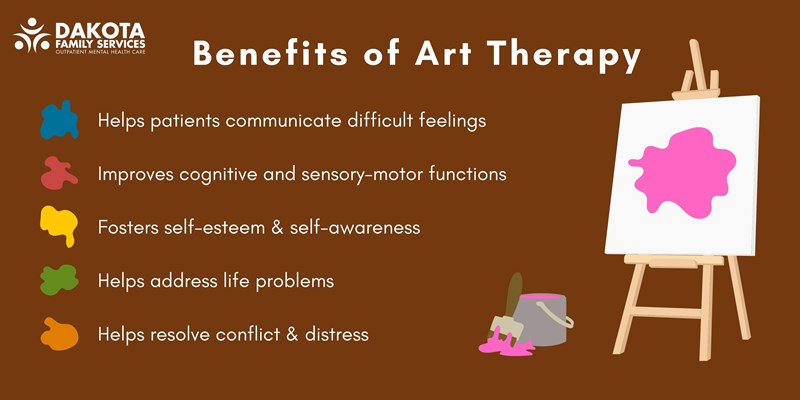Art Therapy
Definition
Art Therapy is the use of art-making activities to treat psychological disorders and enhance mental health. It can help people communicate and work through difficult feelings, improve cognitive and sensory-motor functions, foster self-esteem and self-awareness, address problems in their lives, and help resolve conflict and distress. The theory behind art therapy is that drawing, painting, coloring, and sculpting can help people express feelings that are too hard or difficult to put into words. Art therapy has been proven effective in the healing process for people suffering from conditions including depression, eating disorders, addiction, and post traumatic stress disorder.
Key Things to Know About Art Therapy
- Art therapy has been around since the start of recorded history. It became a formal program in the 1940’s.
- The creation of art is therapeutic, and can improve many ills caused by disease, injury, or trauma.
- Art Therapists are master-level clinicians who have had specific education and supervised practice in art therapy.
Some people struggle with seeing or understanding how art can have therapeutic benefits, but the goal is to use the creative process to help people explore their feelings, improve insight, and develop coping skills.
See an example of how art therapy was used with children in this blog post.
Frequently Asked Questions:
What are the types of art therapy?
Art therapy methods include painting, drawing, sculpture, and collage.
Does art help with anxiety? If so, how?
Art therapy can help with anxiety as it can provide a sense of calm as well as encourage self-expression. Engaging in artistic exercises can disrupt and distract patients from ruminating thought processes or overwhelming emotions. Art can be a form of mindfulness that requires the person to focus on one thing.
Is art therapy good for autism?
While there is limited research on the impact of art therapy with people with autism, there have been positive case studies. Verbal communication difficulties is one of the hallmarks of autism spectrum disorder so providing other means of expression can open up communication channels.


